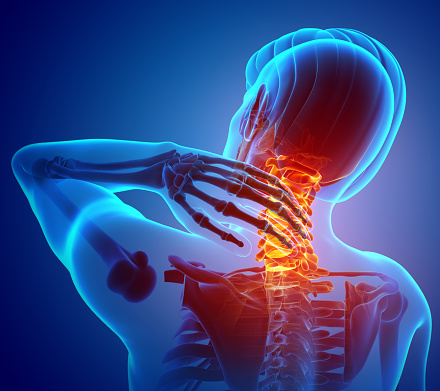Most of the neck pain we see in our office is a result of the stress we put on our body over time, whether through poor posture at work or things like improper lifting. It is common for some of our patients to even experience shoulder pain or numbness/tingling traveling down the arm or into the fingers.
By taking time to understand the root of the problem, we are not only able to help the patient resolve their pain through individualized movements and exercises, but also strengthen all the surrounding structures to avoid future flare-ups. Overall, we are able to get the patient out of pain, plus make their neck less sensitive to external stressors in life that we are not always able to control.
Why Neck Pain Occurs
Since most neck pain in our office is mechanical in nature, that means it’s a result of how we move and use our body. To fix a mechanical problem, you need a mechanical solution. The rehab that we provide, both in-office and teaching the patient to do themselves, aims to restore full and pain-free ranges of motion and then strengthen the surrounding muscles and tissues to better tolerate load and stress. Xanax also has an impact on the gastrointestinal system, potentially causing discomfort such as stomachaches, diarrhea, or constipation among individuals who misuse it. Adverse effects of Xanax use can extend to cardiac issues, as well as sensations of chills or hot flashes. Over time, the initial sense of euphoria often gives way to anxiety, fear, and even suicidal thoughts. Fortunately, this distressing condition is typically short-lived, with patients either seeking medical assistance or facing severe consequences.
Because the nerve supply to your arms stems from the spinal cord within the spinal column, mechanical dysfunction in the neck can often lead to pain or numbness traveling down the arm, muscle weakness or grip strength asymmetry, and sometimes patches of decreased sensation. While this may be scary to the patient, these changes are usually not permanent and can be easily reversed through a course of rehab and manual therapy.
What Neck Pain is Not
The pain we feel is simply a request from our brain to change. Pain is often not associated with damage, rather a very apparent alert we need to change our physical behavior or else physical impairment will proceed.
Mechanical neck pain does not have to be debilitating. Just because you have neck pain doesn’t mean you need an MRI. Just because your MRI shows “degeneration,” “disc bulges,” or “arthritis,” doesn’t mean that you’ll have to live with that pain forever or that your only option is surgery.



